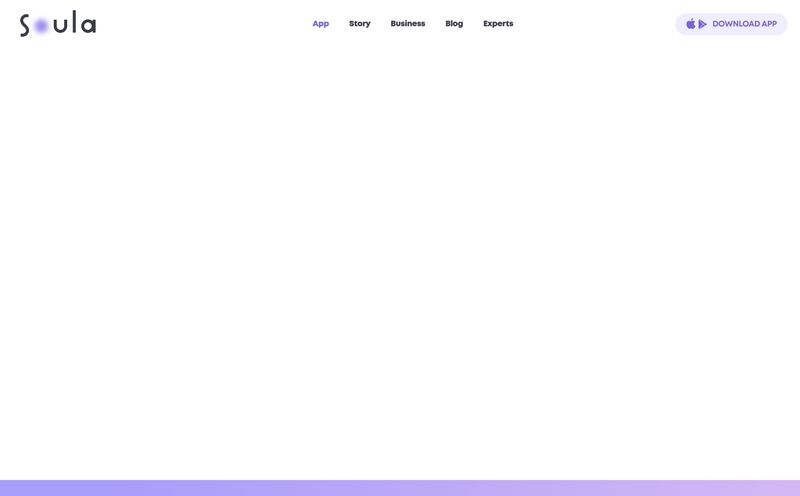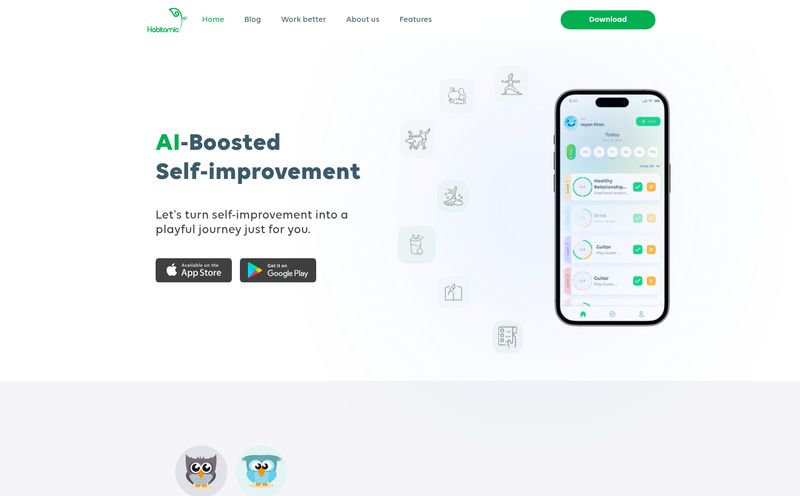I’ve been in the tech and digital marketing space for years. Long enough to see trends come, go, and sometimes, come back again with a new coat of paint. Remember the initial hype around MOOCs? Or the promise of every student having a tablet? Some ideas stick, others fade. Right now, the big conversation is all about AI, and honestly, it’s impossible to ignore. It’s everywhere. And now, it's knocking on the classroom door, promising to change everything.
Enter SocratiQ. The name itself is a pretty bold statement, invoking the granddaddy of critical thinking, Socrates. It’s not just another learning management system (LMS) or a glorified flashcard app. It's an AI-powered learning platform that claims to offer something different: a social, self-driven learning experience with an AI that acts as a “non-judgemental co-thinker.”
That phrase—non-judgemental co-thinker—really caught my attention. It’s a big promise. But in a world where teachers are overworked and students are often disengaged, is an AI thinking partner the answer? Let's get into it.

Visit SocratiQ
So, What Is SocratiQ, Really?
Forget the idea of a robot teacher standing at the front of the class. SocratiQ is designed to be more of a guide on the side. Think of it less like a digital textbook and more like a sparring partner for your brain. It’s built for everyone from K-12 schools and universities to that person learning code in their bedroom at 2 AM (we see you, independent learners).
The core idea is to move away from passive learning—just reading or watching—and towards active engagement. The platform uses AI to ask probing questions, provide instant feedback, and offer encouragement. It’s trying to replicate the Socratic method at scale, where learning happens through a dialogue of questions and answers. It's a fascinating concept that, if it works, could genuinely help students develop critical thinking skills rather than just memorizing facts for a test.
It’s designed to work with existing curricula, which is a huge plus. No one wants to throw out their entire lesson plan. SocratiQ aims to enhance what teachers are already doing, not replace it.
The Standout Features That Caught My Eye
A lot of platforms throw a bunch of features at you, but I'm always looking for the ones that solve a real problem. Here’s what SocratiQ brings to the table.
AI as Your Personal Tutor
This is the heart of the whole thing. The personalized learning component. In a class of 30, it’s nearly impossible for one teacher to give every student the individual attention they need. Some get bored, others get left behind. SocratiQ’s AI tries to bridge that gap. It can adapt to a student's pace, offering extra help where they're struggling or providing more challenging material when they're ready. The idea of getting instantaneous feedback without the fear of “asking a dumb question” is powerful. It creates a safe space to fail, which is ironically where the best learning often happens.
Bringing People Together, Digitally
While the AI is the star, SocratiQ hasn't forgotten the human element. It includes a collaborative learning environment where students can work together and teachers can easily interact with them. It’s not just about a student and their AI buddy. It’s about creating a connected ecosystem. Teachers can design curricula, create assignments, and monitor progress all from one dashboard. This blend of AI support and human collaboration feels like the right direction. We need tools that connect us, not isolate us behind screens.
Giving Teachers Their Time Back
Let's be real for a second. One of the biggest drains on teachers is the mountain of administrative work. Grading, lesson planning, reporting… it’s endless. I've always felt that any EdTech tool's primary goal should be to reduce this burden. SocratiQ seems to get this. By automating parts of the assessment and feedback process and providing detailed progress reports, it aims to free up teachers to do what they do best: teach. Imagine having more time for one-on-one student conversations or creative lesson development instead of spending Sunday night grading papers. That’s a win in my book.
The Good, The Bad, and The AI
No tool is perfect. As an SEO and tech analyst, I’m paid to be skeptical. It's important to look at both sides of the coin before jumping on any bandwagon.
What I'm Genuinely Excited About
The potential for true differentiation in the classroom is huge. Offering every student a personalized path could be a game-changer for engagement and comprehension. The focus on saving teachers time is also a massive plus. Teacher burnout is a real crisis, and tools that genuinely help can make a big difference. And I love that it supports different teaching styles right out of the box. It’s not forcing educators into a rigid, one-size-fits-all model.
A Few Realistic Caveats
On the flip side, there are things to consider. The effectiveness of the whole platform hinges on the quality of its AI. If the feedback is generic or the questions aren't insightful, the magic is lost. There's also the learning curve. A new, complex platform can be intimidating for less tech-savvy educators. And the big one: we can’t let AI completely replace human interaction. There's a warmth, an intuition, and a mentorship in a great teacher-student relationship that an algorithm, no matter how smart, may never replicate. It should be a supplement, not a replacement. And of course, teh price. That’s always a factor.
Let's Talk Money: The SocratiQ Pricing Question
And here we are, at the question everyone asks. How much does it cost? Currently, SocratiQ hasn't made its pricing public. This is pretty common for platforms targeting schools and universities. It usually means they operate on a quote-based model, with pricing that depends on the size of the institution, the number of users, and the specific features needed.
While I can't give you a number, this typically means it's not a simple monthly subscription for an individual teacher, though they might offer different tiers. For independent learners, we'll have to wait and see if they release a more accessible plan. My advice? If you're an institution, reach out to them for a demo and a quote. That's the only way to know for sure.
Frequently Asked Questions about SocratiQ
Here are some quick answers to questions I imagine are floating around.
- Is SocratiQ difficult to learn?
- There will likely be a learning curve, as with any new, feature-rich software. However, since it's designed to integrate with existing curricula, the transition might be smoother than starting from scratch. Success will depend on the school's training and support.
- Can SocratiQ actually replace a human teacher?
- No, and it's not designed to. The goal is to be an assistant or a tool that enhances a teacher's abilities. It handles repetitive tasks and provides personalized support, but it can't replace the mentorship, inspiration, and nuanced understanding of a human educator.
- How does SocratiQ handle different subjects?
- The platform is built to be flexible. The AI's question-based method can apply to almost any subject, from STEM to the humanities. It's about teaching a way of thinking, not just a set of facts. You'd work with the platform to align it with your specific subject matter.
- Is my student data safe with SocratiQ?
- For any EdTech platform, especially one using AI, data privacy is paramount. Schools and universities will need to do their due diligence and review SocratiQ's data privacy and security policies to ensure they comply with regulations like FERPA and GDPR.
- Does SocratiQ offer a free trial?
- This isn't publicly stated. Typically, platforms with enterprise-level sales offer personalized demos rather than open free trials. The best bet is to contact their sales or support team directly.
My Final Thoughts on SocratiQ
So, is SocratiQ the revolution it claims to be? The potential is definitely there. It’s ambitious. It’s tackling some of the biggest problems in education: student engagement, teacher workload, and the need for critical thinking. It’s not just another piece of software; it's a pedagogical statement.
The success of SocratiQ will come down to execution. Can its AI truly be the insightful, non-judgemental thinking partner it promises to be? Can it integrate smoothly into the complex ecosystem of a school? These are the big questions. But I'm optimistic. SocratiQ represents a thoughtful, intelligent step forward in educational technology. It's one I'll be watching very, very closely.
References and Sources
- For more on the challenges facing modern education, I recommend reading reports from organizations like the National Education Association (NEA).
- To learn more about the pedagogical theory, a great starting point is the Wikipedia page on the Socratic method.



